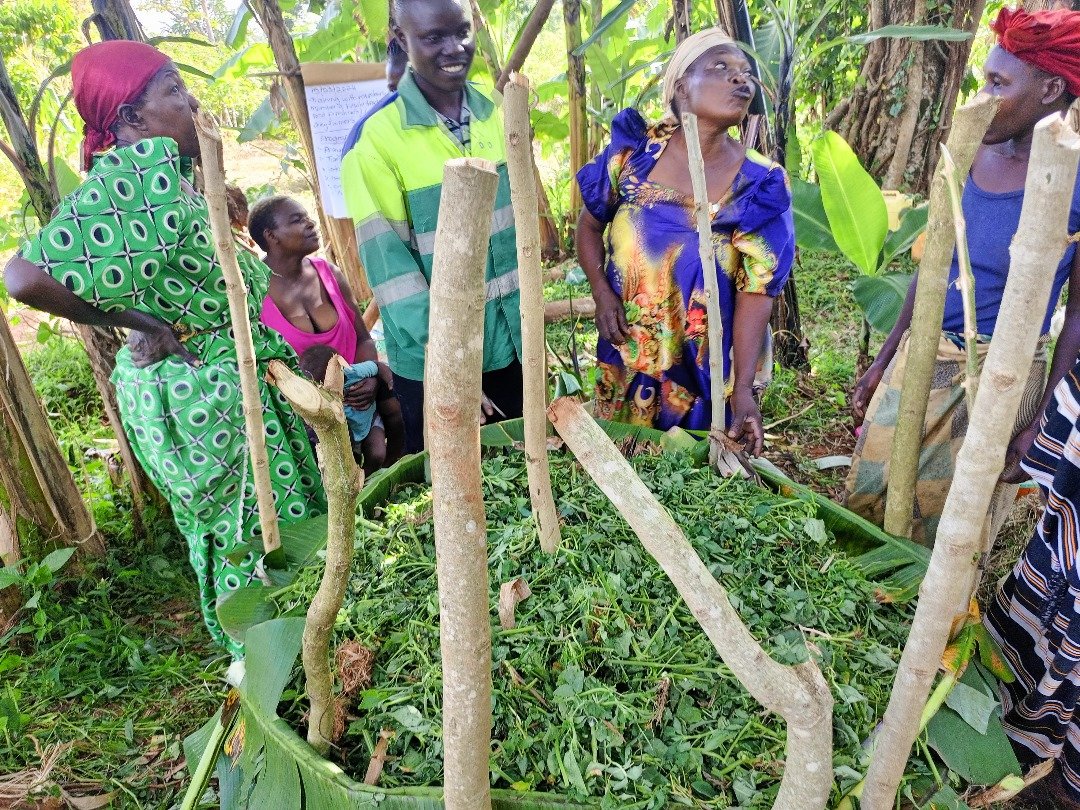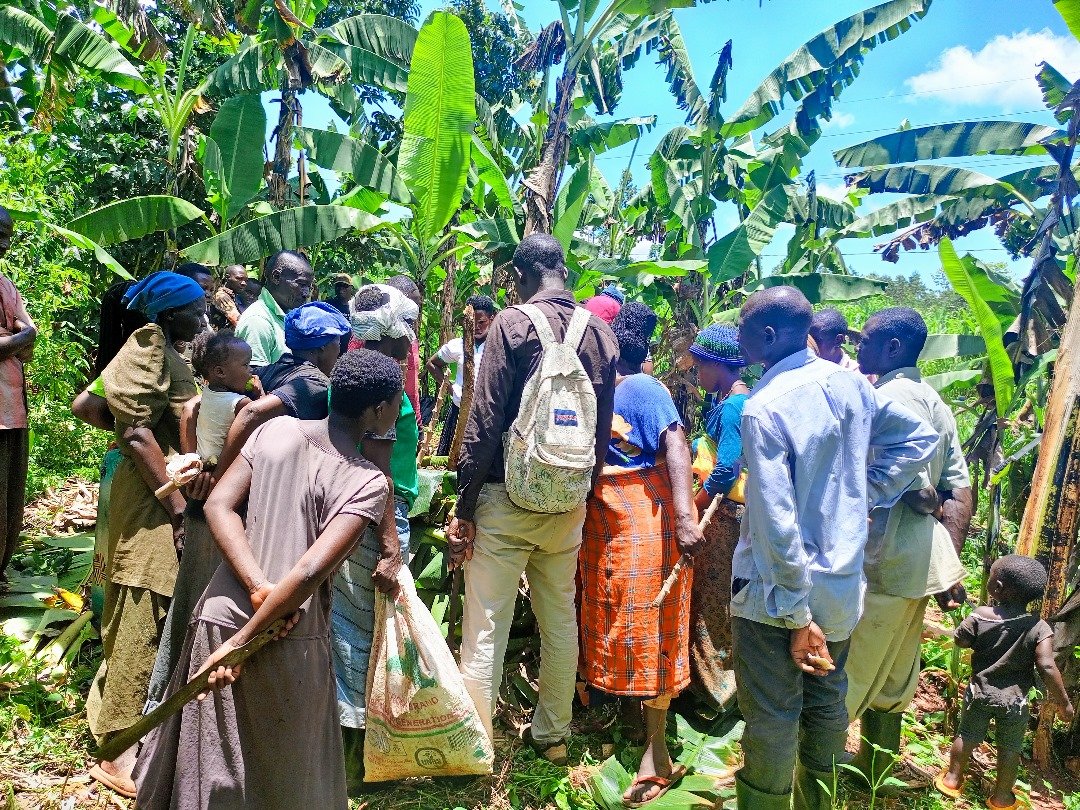FARMERS IN THE SLOW FOOD UGANDA COMMUNITIES ARE EMPOWERED TO REGENERATE THEIR SOILS THROUGH AGROECOLOGICAL TRAININGS
Healthy soils play a critical role in ensuring the productivity of a garden as they’re essential for the wellbeing of plants, animals and humans alike. Enhancing the quality of soil directly contributes to the health and growth of our crops and livestock. Taking care of the soil involves recognizing the importance of applying manure to refill its nutrients. The composition of this matter includes both living organisms and non-living elements. Non-living components result from weathered rocks and decomposing plant and animal matter like fallen leaves that gradually break down on the ground. On the hand living organisms within the soil encompass creatures such as small insects like termites, worms, beetles and microscopic organisms known as microbes.
To maintain health soils in the Slow Food Uganda farming communities, there were series of trainings held in March by the Slow Food Uganda team to educate farmers from the selected food communities about the agroecological practices that promote healthy soils. These initiatives primarily targeted network members encountering challenges related to declining soil fertility on their farms.
Throughout the training sessions participants delved into techniques like soil conservation, water management, mulching, intercropping, biodiversity promotion as well as the utilization of hot compost as a natural fertilizer. The training sessions covered topics, like Bocashi, Organic Hot Compost and other agroecological practices. These workshops aimed to empower farmers and volunteers by teaching them how to create fertilizer from locally available materials to support healthy plant growth. As part of the Kigezi consortium project, Uganda Red Cross volunteers were guided through the step by step process of producing Bocashi manure enabling them to engage in the procedure and understand the advantages of using different materials for this type of fertilizer. The prepared Bocashi will be utilized in the vegetable gardens planned at the Red Cross office in Kabale as a demonstration plot. Ruth Namuleme, SFYN coordinator led the Bocashi training session. She explained that Bocashi is a term describing the fermentation process that transforms waste into a beneficial product. It is carefully crafted to produce decomposed materials suitable for use as fertilizer within 12 15 days. This fertilizer comprises ingredients like matter (such as coffee husks, broken maize cobs, dried leaves and sawdust) manure, soil, charcoal, bran (, from maize, rice and wheat) molasses and yeast. High quality bokashi can enhance plant growth. Enrich soil fertility.
Moreover, the training initiative expanded to communities Mukono and Buikwe districts before extending to regions where Slow Food Uganda is active. The program covered aspects such, as the Slow Food philosophy, an overview of Agroecology and its core principles creating 18-day compost for organic fertilization and developing action plans with various local food producers.
This approach enhances self-reliance, soil quality improvement, increased yields and carbon capture efforts. The program also reinforces Slow Food Uganda’s commitment, to promoting quality friendly food production practices. Our team’s approach to teaching farmers about the particulars of making bio fertilizers to help revive their soil was well received. The farmers have expressed their intention to spread the word, about agroecological farming practices. Slow Food Uganda is dedicated to empowering small-scale farmers by equipping them with such kind of hands on trainings in agroecological techniques enabling them to sustainably produce food and improve their livelihoods.






